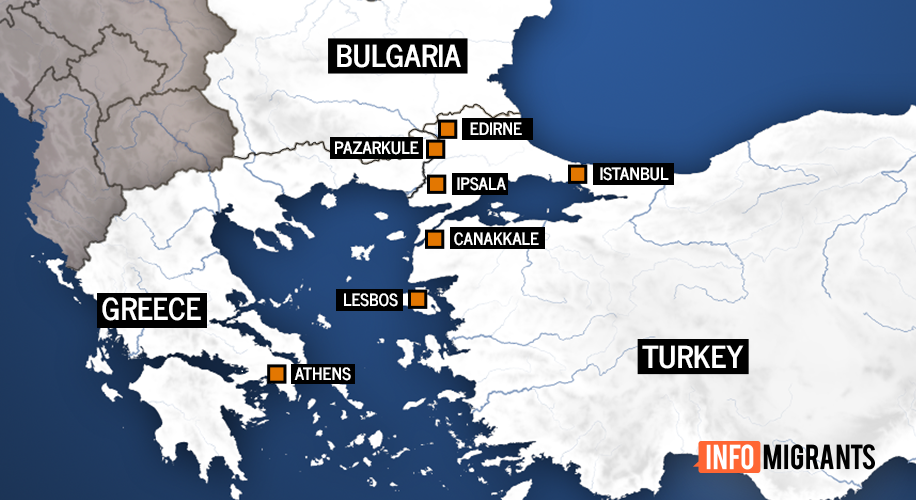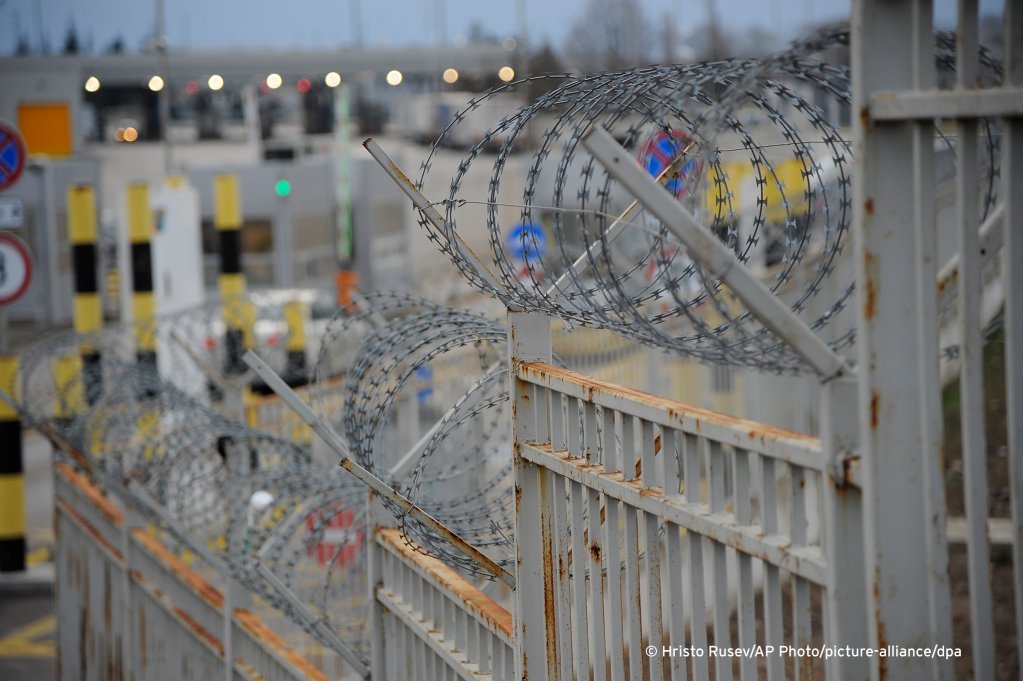Ahead of Bulgaria’s partial accession to Europe’s Schengen zone, a mood of hostility towards migrants – stoked by politicians – is reportedly growing.
From the end of this month, EU members Bulgaria and Romania will join Europe’s Schengen zone for air and sea travel.
Following more than a decade of talks, the two countries were granted partial accession to the visa-free zone after Austria lifted its veto. That came with the condition that asylum seekers who enter Europe through Bulgaria and Romania can be sent back there, as stipulated in the EU's Dublin Regulation.
Bulgaria, the EU's poorest country, shares a land border with Turkey, which hosts around 3.6 million refugees. The EU’s border agency Frontex recently sent a large number of reinforcements to the border as part of a joint operation with Bulgarian authorities.
Also read: Refugees in Greece are seeking asylum again – in Belgium

Ahead of the partial accession to Schengen, hostility towards migrants in Bulgaria has been growing, the AFP news agency reports, including several incidents targeting foreigners as well as public rallies against refugees.
Fake claims about migrants
Some politicians have been joining in the anti-migrant rhetoric. In January, the leader of the pro-Russian 'Revival' party, Kostadin Kostadinov – known for his extreme anti-migrant and anti-Roma views – said Bulgaria could become "the world's biggest refugee camp."
Far-right politicians are also reported to have posted videos on social media they said showed "migrants beating up young Bulgarians" in the capital Sofia, though police described the incident as an altercation between two rival Bulgarian groups.
"There is no migration crisis, but a crisis narrative that poses a real threat to security," migration expert and lecturer at Sofia University, Idliko Otoya, told AFP.
The Bulgarian government blames this narrative on political parties which it says are "inciting hatred and insecurity by spreading false information."
It also suspects Russian involvement in "predictions of chaos and destruction," since most of the recent claims concerning migrants have been picked up on and publicized by pro-Russia websites, AFP reports.
Politicians from smaller parties with a pro-Russia stance even went to the airport to film planes allegedly carrying "hordes of migrants," posting photos in an attempt to back up their claims.
Gateway to Europe
The Turkey-Bulgaria border, a key crossing point from migrants into the European Union, is also said to be the site of systematic brutalities committed by Bulgarian officials who push migrants back to Turkey in violation of international law.
Many observers say that the government’s claims to have prevented tens of thousands of migrants from entering the country are actually illegal pushbacks.
Most of those who manage to make it into Bulgaria – mainly nationals of Afghanistan, Syria and Morocco – do not stay long and travel further to Western Europe.
Also read: Investigation: InfoMigrants exclusive series Bulgaria

Those whose asylum applications in other countries such as Germany are refused, or who are not permitted to stay for other reasons, can be sent back to Bulgaria under the Dublin rules.
According to official Bulgarian figures, as of March 11, 190 migrants had been transferred back to Bulgaria so far this year under the Dublin system. In the last two months of 2023, the figure was 127.
Also read: France deports four Afghans to Bulgaria, lawyers fear return to Afghanistan
Returnees mistreated
In addition to frequent testimonies of pushbacks of migrants, deportees have reported that they were mistreated by officials upon their return to Bulgaria.
In September, 2023, the Jesuit Refugee Service (JRS) in Germany was contacted by a group of mostly Syrians who had been deported from Bavaria and had suffered beatings and abuse by authorities who also told them they "should have stayed in Germany instead of coming back."
The men reported being sick and destitute without any assistance until money sent by the JRS enabled them to rent private accommodation and obtain a residential address, which is required for an asylum application.
Some politicians have expressed strong opposition to taking back deportees. After the return of a group of around two dozen migrants from Germany, the Bulgarian Socialist Party accused the government of rubber stamping a "penal colony for criminals, murderers, rapists and money launderers."
German authorities said the only known criminals among those deported were some Bulgarians released after having served their sentences in Bavaria. The others were 18 Syrians – including children below the age of six – none of whom had been convicted of serious offences in Germany.
With AFP
Also read: 'Syria has become better than Bulgaria' – migrants speak out about conditions in EU refugee camp
